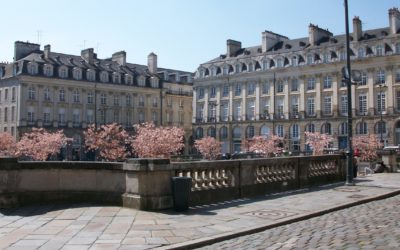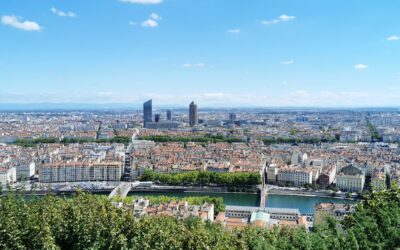The German Environmental Agency calls for further collaboration strengthen the acceptance of Germany’s heat transition • Promising progress of the heat transition in the Federal State of Brandenburg • Read more about the developments in sustainable heating and cooling in this month's news update from Germany
The German Environment Agency (Umweltbundesamt) issued a report in late June 2025, to support the social and political acceptance of Germany’s heat transition and to outline key instruments for implementing a resilient, low-carbon heat supply. It emphasizes that decarbonizing building heat is essential to meeting Germany’s 2045 climate neutrality target.
Heat still accounts for roughly 30% of CO₂ emissions in the building sector. The report outlines core measures: municipal heat planning, expansion of heating networks, energy-efficient renovations, and a gradual phase-out of fossil fuels and that efficiency is central as renovation of building envelopes and digital control systems can significantly reduce energy demand.
Ensuring social fairness is also key. Vulnerable households are particularly affected by high energy costs and poor insulation. The report stresses fair cost-sharing between landlords and tenants, access to funding, and targeted policies.
It has also been highlighted that success depends on coordinated action among municipalities, utilities, trades, and civil society, whereas EU directives and national legislation provide the legal framework. The report ultimately calls for a broad, socially inclusive transition, supported by transparency, long-term planning, and local engagement heightening the importance of best practises from leaders in the heat transition.
Read more in article from Umwelt Bundesamt
RBB24, the regional news platform of Berlin-Brandenburg area highlights that municipalities across Brandenburg are beginning to plan how they will transition away from fossil fuels in line with Germany’s 2045 climate targets. The report focuses on Rüdersdorf, where around 95% of current heating relies on natural gas. As an early mover, the municipality spent over a year developing a heat plan based on renewable energy and industrial waste heat.
According to RBB24, the process was slowed by data access challenges, but public resistance was minimal. Two areas were identified as suitable for district heating networks. These systems, fed by renewable or waste heat, are considered more efficient and climate-friendly than individual gas or oil systems.
Statewide, only five municipalities have completed their plans, but nearly one-third have started. Brandenburg’s Infrastructure Minister Detlef Tabbert (BSW) sees this as progress, noting that smaller municipalities benefit from learning by example.
RBB24 notes that while the heat plans are non-binding, they provide orientation and planning security. This is echoed by private actors like heat pump providers, who call for clearer long-term policies. While parts of the current heat planning law remain contested, the article suggests that municipalities are moving ahead with tailored, practical solutions to decarbonize their heat supply.
To stay updated on news for sustainable heating and cooling, follow us on LinkedIn, and subscribe to our Newsletter.
Sweden is at the forefront of decentralised heat networks technology. Our aim for “Sustainable Heating & Cooling by Sweden” is to facilitate knowledge sharing between British, French and Swedish stakeholders and develop and encourage environmental and economic best practice.
To find out how we can help you and your organisation, please contact our London or Paris-based “SHC” teams. We can introduce you to leading consultants, suppliers of technology and services who will be pleased to share know-how of the development of sustainable heating & cooling solutions.


